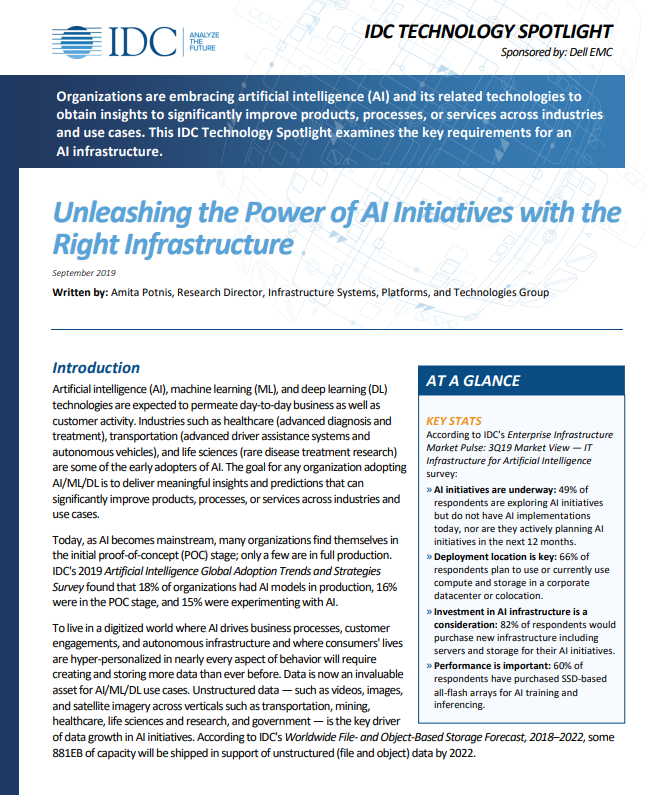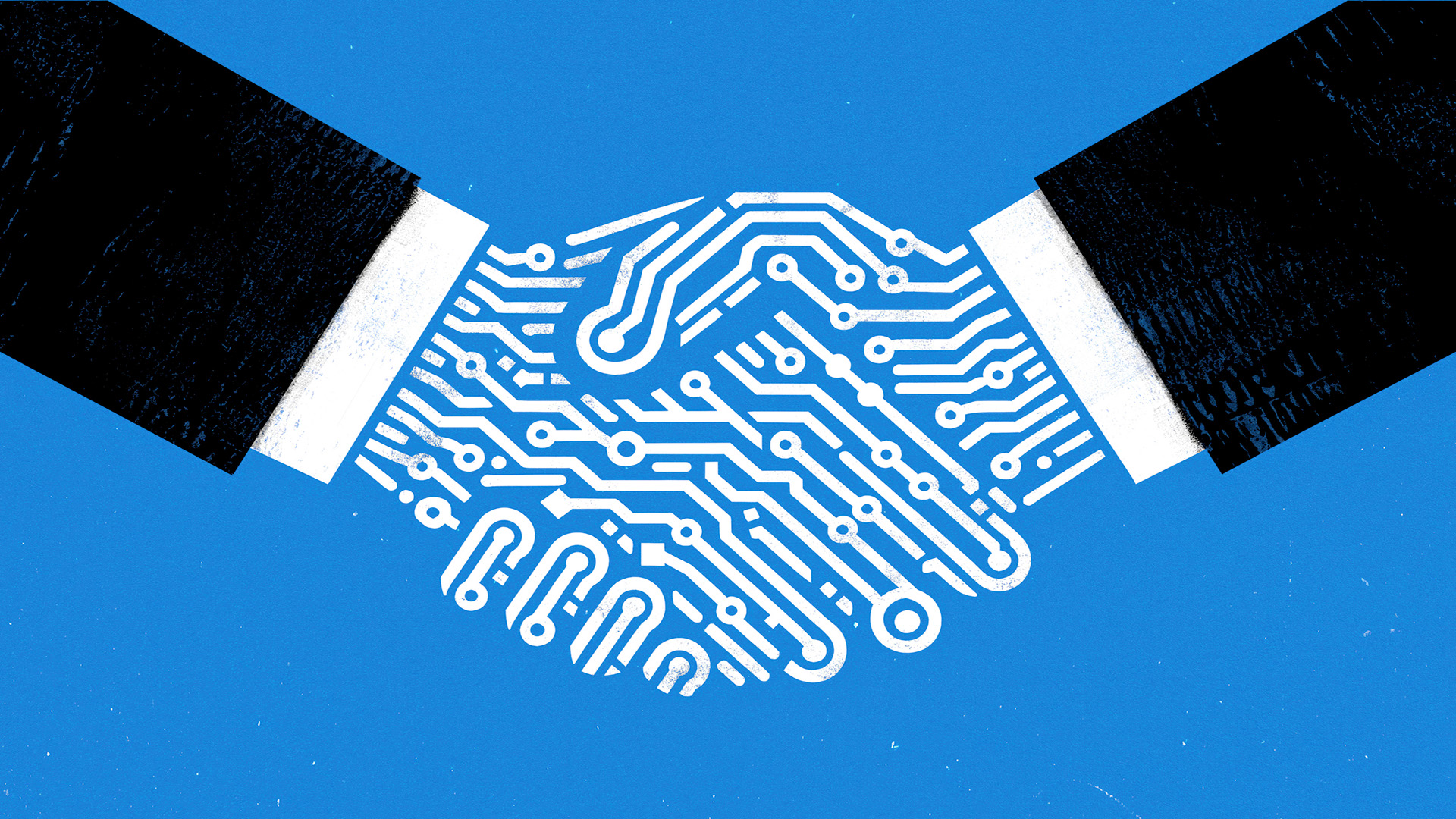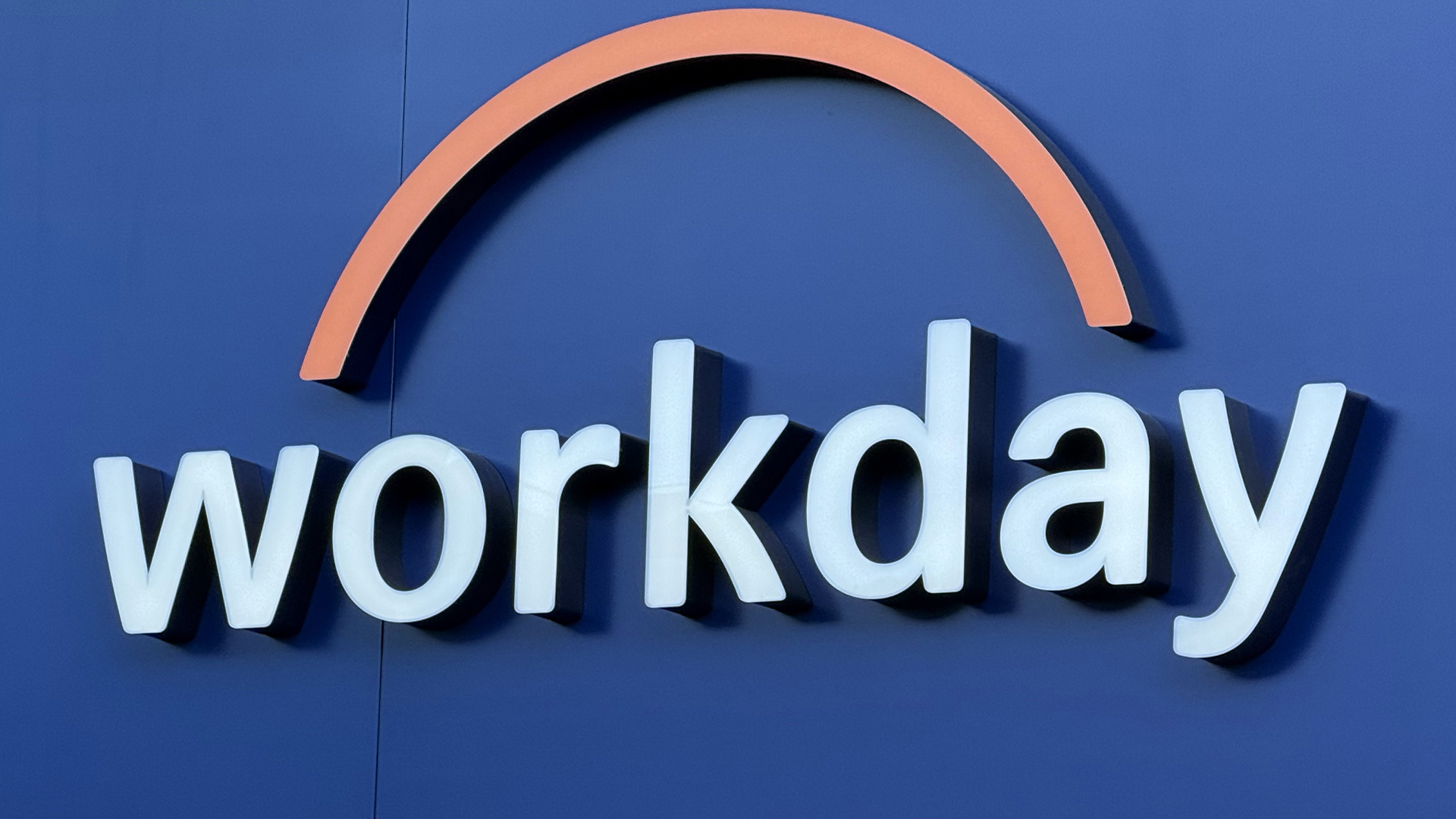Why IT professionals are concerned about the rise of AI
AI is quickly automating numerous areas of the technology workplace, and many IT professionals fear becoming redundant as a result. Are these concerns justified?

A growing number of IT workers are worried about what artificial intelligence (AI) and machine learning technologies mean for their future. Research from cybersecurity firm Trend Micro claims that nearly half of IT leaders think AI will render their roles redundant over the coming decade.
Meanwhile, a 2020 report by security management platform Exabeam found that 53% of cybersecurity professionals aged 45 or under view AI and machine learning as threats to job security. Are IT professionals right to be concerned about the rise of AI technology, and how can they stay relevant in the years to come?
Varying concerns
There are many different reasons IT professionals are worried about the rise and advancement of AI in the technology workplace, according to Exabeam security specialist Sam Humphries.
“The ongoing concern for automation and AI among younger professionals may be partially attributed to lack of on-the-job training using these technologies,” she says. “It could also be symptomatic of the current economic climate, partnered with lack of experience of working through a recession.”
Paul Clough, head of data science at tech consultancy Peak Indicators, points out that people are naturally worried about new and unknown developments in their industries. "We shouldn't be surprised that IT leaders are concerned about the rise of AI. They are human after all, and any change – even positive – will be seen by some as a threat.”
Jake Moore, a security specialist at ESET, expresses similar views, saying: “It’s understandable in current times that many will fear the unknown and true AI is exactly that. Machine learning is rising at such a rate that alongside AI, it has the potential of consuming more than what was bargained for. IT leaders want to progress and futureproof their systems but without using technology that will automate at such a rate that it takes over and wipes out jobs.”
AI isn’t that bad
The increasing presence of AI and automation in the IT department isn’t necessarily bad news for technology professionals, however. Andrew Rogoyski, an independent technical expert, explains it’s allowing them to focus on tasks that require more attention and specialist knowledge.
Sign up today and you will receive a free copy of our Future Focus 2025 report - the leading guidance on AI, cybersecurity and other IT challenges as per 700+ senior executives
He says: “AI is already having a major impact on the IT help desk function, with users able to get an answer to their problem using increasingly sophisticated chatbots/AI. This allows human resources to be better utilised for more complex interactions.”
Many aspects of the IT profession will always be harder to automate, despite advancements in AI. Rogoyski says: “Areas like risk management, user experience designs, technical architecting and other creative tasks will remain the domain of human experts for years to come.”
Even though many IT professionals are fearful of being replaced by AI, some experts believe there’s no need for them to worry at all. Ali Vaziri, managing associate at law firm Lewis Silkin, says: “Although AI tools are proving increasingly valuable to assist in undertaking discrete tasks, they are not a panacea. Even with automation, there will still need to be human involvement in deciding how to deploy those tools, and to oversee them.
RELATED RESOURCE

Unleashing the power of AI initiatives with the right infrastructure
What key infrastructure requirements are needed to implement AI effectively?
“That oversight is crucial: Someone, rather than something, will still need to be accountable for decisions, even if those decisions are based on the output of algorithms; and perhaps more so where the inner workings of those algorithms lack transparency – as is usually the case with AI.”
Moore is also optimistic about the impact of AI on tech roles, overall. “I don’t think AI and ML will make our jobs obsolete. It’s likely that we will work together in unison with AI technology and help make systems better protected as some skills will never be able to be replaced,” he says.
Embracing change
If technology professionals want to stay ahead of the curve and remain relevant in a future AI-dominated workplace, they must be willing to embrace change and develop new skills. “Instead of breaking down a problem into logical flows that you then program into a computer, AI and ML require you to train the system to do the thing you want. It requires new skills and a greater appreciation of data analytics, as well as coding,” explains Rogoyski.
“Nearly all of these technologies don’t pose a threat to IT leaders’ jobs; they’re just introducing new technologies to learn, which is nothing new. It goes with the territory and most experienced IT pros have already had to learn several new technologies in the last few years, like deploying cloud and mobile platforms.”
Rogoyski recommends that technologists focus on developing core competencies such as data security, network deployment, cloud deployment, and mobile technologies. He continues: “As long as they remain open to learning new skills, they’ll have a long and busy career.”
Agata Nowakowska, area vice president EMEA at edtech firm Skillsoft, also believes that technologists must be proactive with their career development and consider different ways to expand their skills as AI disrupts the industries in which they work. She says: “Ultimately, the more proficient and agile an employee is, the better positioned they are to take the reins, rather than fear evolving technologies.”
She admits, though, that ensuring everyone benefits from disruptive new technologies like AI is challenging for employers. To solve this, they should provide all employees with lifelong learning opportunities. “Offering employees upskilling and reskilling options will ultimately increase their job transitioning prospects, preparing them for the shifting digital workplace and for those jobs that aren’t available yet,” she says.
“Promisingly, Trend Micro has identified that within the next 12 months, 45% of IT managers said they would focus on staff training. This is the best way to quell worries and embrace the possibilities of accelerated growth that AI and automation enable.”
Exabeam’s Humphries takes the view that IT leaders should discuss how AI creates new opportunities for growth, rather than how it could one day replace jobs, in order to ease concerns among technologists. She tells IT Pro: “This starts with sharing AI and automation best practices, increasing understanding around the technologies that workers fear.
“Ultimately, the workforces that are best prepared will be those that are able to swiftly adapt to changing environments. Investing in ongoing educating and training around new roles and technologies will create agile workers and new job opportunities. Indeed, AI and automation are not to be feared, but utilised to propel innovation and growth.”
Though AI is already impacting many different technology professions, human workers will continue to play a vital role across the IT department because they possess unique skills that this technology can’t master. But at the same time, they must be prepared to embrace change and learn new skills to keep in sync with new technological developments.
Nicholas Fearn is a freelance technology journalist and copywriter from the Welsh valleys. His work has appeared in publications such as the FT, the Independent, the Daily Telegraph, the Next Web, T3, Android Central, Computer Weekly, and many others. He also happens to be a diehard Mariah Carey fan. You can follow Nicholas on Twitter.
-
 What is Microsoft Maia?
What is Microsoft Maia?Explainer Microsoft's in-house chip is planned to a core aspect of Microsoft Copilot and future Azure AI offerings
-
 If Satya Nadella wants us to take AI seriously, let’s forget about mass adoption and start with a return on investment for those already using it
If Satya Nadella wants us to take AI seriously, let’s forget about mass adoption and start with a return on investment for those already using itOpinion If Satya Nadella wants us to take AI seriously, let's start with ROI for businesses
-
 Lisa Su says AI is changing AMD’s hiring strategy – but not for the reason you might think
Lisa Su says AI is changing AMD’s hiring strategy – but not for the reason you might thinkNews AMD CEO Lisa Su has revealed AI is directly influencing recruitment practices at the chip maker but, unlike some tech firms, it’s led to increased headcount.
-
 Keeper Security expands federal bench with latest senior hires
Keeper Security expands federal bench with latest senior hiresNews The security vendor has bolstered its federal team to support zero-trust access, operational execution, and government modernization efforts
-
 HackerOne eyes enterprise growth with double C-suite appointment
HackerOne eyes enterprise growth with double C-suite appointmentNews Seasoned industry executives Stephanie Furfaro and Stacy Leidwinger have joined the cyber security vendor’s executive team
-
 Enterprises are cutting back on entry-level roles for AI – and it's going to create a nightmarish future skills shortage
Enterprises are cutting back on entry-level roles for AI – and it's going to create a nightmarish future skills shortageNews AI is eating into graduate jobs, and that brings problems for the internal talent pipeline
-
 AI resume screening, recruiter chatbots, and ‘ghost jobs’ are causing havoc for struggling entry-level workers
AI resume screening, recruiter chatbots, and ‘ghost jobs’ are causing havoc for struggling entry-level workersNews A new report shows employers are cutting back on entry-level hiring, but expect things to improve eventually
-
 Workday snaps up AI-powered conversation recruitment platform, Paradox
Workday snaps up AI-powered conversation recruitment platform, ParadoxNews Workday will integrate Paradox’s AI-driven candidate experience agent to help deliver talent faster
-
 The Channel Recruiter and Nebula debut new global talent resourcing solution
The Channel Recruiter and Nebula debut new global talent resourcing solutionNews Tech Talent on Tap aims to provide channel firms with on-demand access to elite technical professionals from around the world
-
 Tech talent shortages mean firms are scrapping traditional recruitment strategies
Tech talent shortages mean firms are scrapping traditional recruitment strategiesNews With more than half of enterprise leaders worried about future skills shortages, many organizations are turning to a range of new techniques to expand potential talent pools.